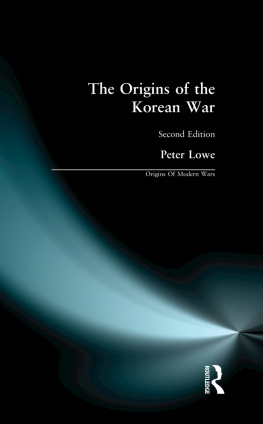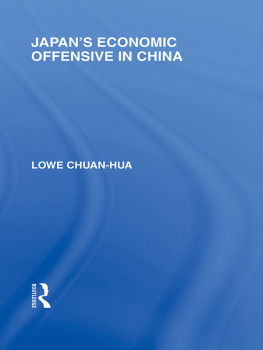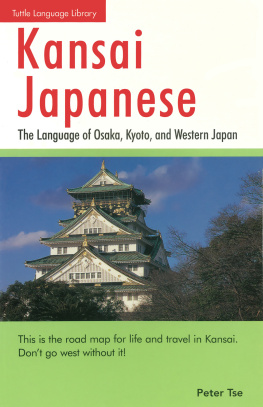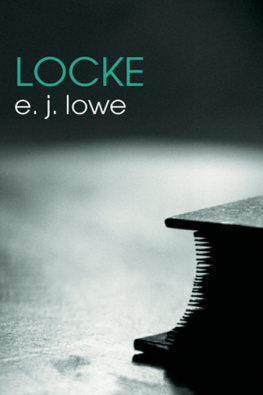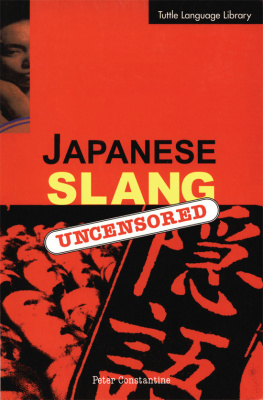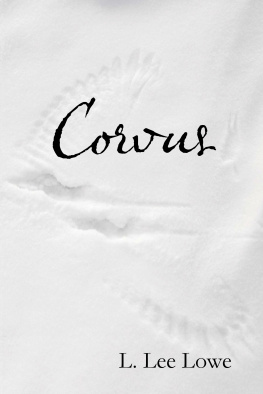WESTERN INTERACTIONS WITH JAPAN
EXPANSION, THE ARMED FORCES & READJUSTMENT 18591956
WESTERN INTERACTIONS WITH JAPAN:
EXPANSION, THE ARMED FORCES & READJUSTMENT 18591956
EDITED BY
PETER LOWE & HERMAN MOESHART
First published 1990 by
JAPAN LIBRARY LTD
Published 2013 by Routledge
2 Park Square, Milton Park, Abingdon, Oxon OX14 4RN
711 Third Avenue, New York, NY, 10017, USA
Routledge is an imprint of the Taylor & Francis Group, an informa business
WESTERN INTERACTIONS WITH JAPAN
EXPANSION, THE ARMED FORCES & READJUSTMENT, 18591956
Japan Library Ltd
All rights reserved. No part of this publication may be reproduced, stored in a retrieval system, or transmitted in any form or by any means without prior permission.
British Library Cataloguing in Publication Data
Western interactions with Japan : expansion, the armed forces & readjustment 18591956.
1. Japan. Foreign relations with western world, history I. Title II. Moeshart, Herman
327.5201713
ISBN 13: 978-0-904-40484-5 (pbk)
Cover design by Juan Hayward
This book has been set in Plantin Roman 10 on 11 point.
Processing by Visual Typesetting, Harrow.
Contents
HERMAN MOESHART
ALBERT ALTMAN
JOHN CRUMP
VALDO FERRETTI
OLAVI K. FALT
BOB DE GRAAFF
GERHARD KREBS
OTABE YUJI
PETER LOWE
TANAKA TAKAHIKO
We wish to express our deep appreciation to the University of Durham for hosting the triennial conference of the European Association for Japanese Studies in September 1988: it was a most stimulating and enjoyable occasion. In particular we wish to thank Professor Ian Nish, then President of EAJS, and Mr Louis Allen, Durham representative on the EAJS Council, for their hard work and encouragement.
We are extremely grateful to the Trustees of the Great Britain-Sasakawa Foundation for generously awarding a grant sufficient to facilitate publication of this volume. In addition, we wish to thank Mr Donald Warren-Knott, Administrator of the Foundation, for his advice.
Finally, it is a pleasure for us to emphasise our appreciation of the enthusiasm and efficiency of our publisher, Paul Norbury, which has made our task easier and more congenial than would otherwise have been the case.
PETER LOWE
HERMAN MOESHART
Manchester and Leiden
January 1990
ALBERT ALTMAN is a professor in the Department of East Asian Studies, Hebrew University of Jerusalem. His most recent publication is Towards a Comparative Study of the Emergence of the Press in Japan and China, in Ian Nish (ed.), Contemporary European Writing on Japan (Paul Norbury Publications, 1988).
JOHN CRUMP is a lecturer in Politics at the University of York. He is co-editor (with Maximilien Rubel) of Non-Market Socialism in the 19th and 20th Centuries (Basingstoke, 1987).
OLAVI FLT is a senior researcher of the Academy of Finland and teaches in the Department of History, University of Oulu. His most recent publication is The Influence of Finnish-Japanese Cooperation during the Russo-Japanese War on Relations between Finland and Japan, 19171944 - Akashi Motojiroo, Rakka Ryuusui. Colonel Akashis Report on His Secret Cooperation with the Russian Revolutionary Parties during the Russo-Japanese War. Selected chapters translated by Inaba Chiharu and edited by Olavi K. Flt and Antti Kujala. Studia Historica 31 (Vammala, 1988).
VALDO FERRETTI is a lecturer jointly in the Faculty of Political Sciences and the Department of Oriental Studies, University of Rome. He has recently published Sato Naotakes mission to Rome in 1940, in Ian Nish (ed.), Contemporary European Writing on Japan (Paul Norbury Publications, 1988).
BOB DE GRAAFF is a senior lecturer in the Japanese Studies Department of the Erasmus University of Rotterdam and is editor of the multi-volume series Documents on Dutch Foreign Policy, 19311940. He is the author of Hot Intelligence in the Tropics: Dutch Intelligence Operations in the Netherlands East Indies during the Second World War, Joumal of Contemporary Histoty 22 (1987).
GERHARD KREBS is a research associate in the Department of History, Freiburg University. He is the author of Japans Deutschlandpolitik, 19351941 2 vols. (Hamburg, 1984).
PETER LOWE is a reader in History at the University of Manchester. He is the author of The Origins of the Korean War (London, 1986).
HERMAN MOESHART is an assistant curator in the Printroom of the University of Leiden. He has edited Journaal van Dirk de Graeff van Polsbroek, 18591870 (Assen, 1987).
OTABE YUJI teaches modern Japanese history at Rikkyo University, Tokyo Womens University and Ibaraki University, Japan. He is the author of Tokugawa Yoshichika no jugonen senso (Tokyo, 1988).
TANAKA TAKAHIKO is a graduate student in the Department of International History, London School of Economics. He has completed a Ph.D. thesis examining Soviet-Japanese relations, 19556.
PETER LOWE & HERMAN MOESHART
The papers published in this volume were presented originally in the History, Politics and International Relations section of the European Association for Japanese Studies triennial conference, held at the University of Durham in September 1988; they have been revised for publication. The papers as a whole consider different aspects of the interaction between Japan and the West and collectively offer a valuable insight into the growth of Japanese power. The period ranges from 1859 to 1956, a crucial century in Japans history, extending from the traumas associated with the impact of western imperialism in the first decade of the opening of Japan to the adjustments following the Pacific War, as Japan regained sovereignty after the end of the allied occupation.
Herman Moeshart examines von Siebolds second visit to Japan between 1859 and 1862. This paper portrays von Siebolds genuine fascination with Japan together with the mixture of arrogance and self-interest which was frequently found in the conduct of individual foreigners in Japan. Moeshart brings out von Siebolds cantankerous qualities which often strained the patience of his superiors and the Japanese with whom he dealt. Japanese resentment at the western presence in Japan becomes more explicable when the problems of coping with individuals such as von Siebold are taken into account.
Albert Altman provides an illuminating insight into the functioning of two newspapers in the late nineteenth century. The Asahi shinbun and the Mainichi shinbun appeared within a relatively short time and the foundations of their subsequent rivalry resulted from the sources of their financial support and diverse political loyalties. Altman demonstrates how newspapers operated and, in particular, how the relationship between proprietors and editors evolved with the proprietors gaining the upper hand in contrast to the previous situation that obtained in Japan.
Comparisons with powerful newspaper magnates elsewhere, such as Lord Northcliffe in Britain and William Randolph Hearst in the United States are evoked in the readers mind with due acknowledgement to the contrasts. What was good for business was now said to be good for Japan, Altmans concluding sentence, has a familiar ring.


